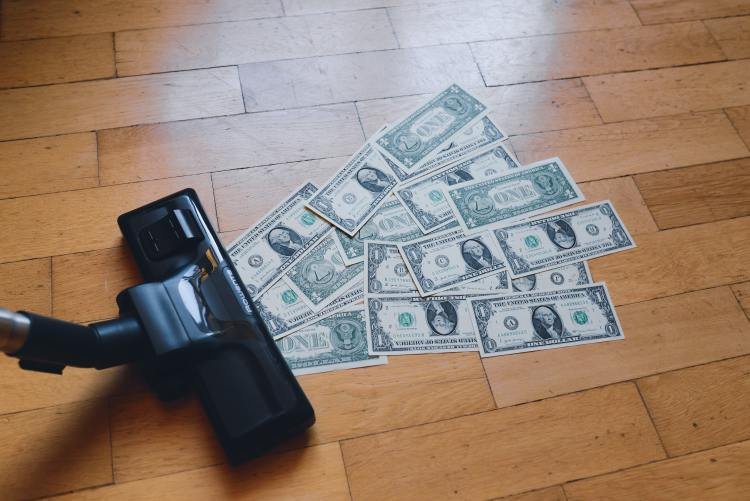Do ‘Junk Fees’ Really Deceive Consumers?

The latest in the government’s war against the economy: Joe Biden has announced success in eliminating so-called “junk-fees,” an unpopular aspect to many purchases. Celebration, however, is misplaced.
After meeting with business leaders infamous for inflicting these “junk-fees,” such as LiveNation, Airbnb, and Seatgeek, the companies committed to eliminating these “hidden” fees. The Biden administration’s justification for intervening is that these companies sneak in these fees in order to strong arm consumers into paying more than they initially intended. Framed in this way, it is as if the Biden administration were some benevolent arbitrator stepping in and convincing fraudulent, greedy companies to stop robbing the consumer. This is just inaccurate.
The Biden administration has nothing with which to negotiate except the threat of using government force. These companies, out of fear of encroachment, are willing to negotiate. Meetings like this would be ultimately powerless in a free economy; the government would be unable to get the companies at the negotiating table, but, in the modern, interventionist economy, meetings with government officials have the specter of intervention and regulation hanging over them.
The threat is a credible one as well. While the president can sign an executive order and cross his fingers, Congress is actively taking steps against “junk fees.” The Junk Fee Prevention Act is in the works, and the Consumer Financial Protection Bureau (CFPB) is producing new rules to combat these fees as well.
Another question remains: Is charging “junk fees” a fraudulent act? Absolutely not. Looking past the headlines, it is obvious that the fees are not hidden, but disclosed prior to the finalization of the purchase. In a blog post, the White House defined junk fees as fees meant to deceive the consumer or fees that are only disclosed later in the purchasing process.
Essentially, firms are being accused of using a lengthy purchasing process to acquire market power, rather than charging undisclosed fees. They are not engaging in fraud; if they were, the fees would be levied without any notification whatsoever. If undisclosed fees were levied, consumers would have recourse in the legal system.
Are consumers even unaware of these fees? If we are talking about DoorDash, GrubHub, Uber, Uber Eats, Lyft, Airbnb, or other similar businesses, the customers have likely used the service more than once. You don’t just go through the hassle of downloading the app and connecting your credit card to just use the service once. So, it is likely that many of the “victims” of these fees are not “victims” at all, but are fully aware that the fees will be levied.
Even if the consumers are unaware, they probably weren’t expecting a specific price. Imagine a person getting off a plane and realizing that they forgot to plan to get from the airport to their hotel. They never used Uber, but they are aware of its existence. They download the app and book a car. When the price comes up before the finalization of the purchase, it lists a variety of fees. They click “purchase” because they don’t have many other options. On what grounds do they have to complain? If the fees had been listed with the price, the behavior of this hypothetical person is unlikely to have changed.
Many have undoubtedly been in a similar situation (I have). A similar scenario can be conceived for the other companies listed. This demonstrates that the opponents of “junk fees” are full of hot air, at least when it comes to the idea that consumers are being “deceived.”
On another note, the private sector is not solely responsible for these fees; many junk fees come from the government. How many times have you bought something and forgot that there was a government imposed fee or tax applied to it? You most certainly have, and you are not alone in doing so. If the Biden administration wanted to get rid of “junk fees” or even undisclosed fees, he would eliminate government taxes and fees and work with state governments to do the same.
Ultimately, “junk fees” don’t harm consumers. In fact, if they were prohibited, they might take the form of some other fee disclosed at the finalization of the purchase or be encapsulated in the up-front market price. Consumers are likely aware of these so-called “hidden fees” and incorporate them in their planning. The government, in wanting to eliminate them, is searching for an enemy, an easy battle to fight to make it seem as if the government is winning against the greedy capitalists and fighting for the common man. But upon further evaluation, it is just a farce.
Content syndicated from Fee.org (FEE) under Creative Commons license.
Agree/Disagree with the author(s)? Let them know in the comments below and be heard by 10’s of thousands of CDN readers each day!
Read More: Do ‘Junk Fees’ Really Deceive Consumers?

